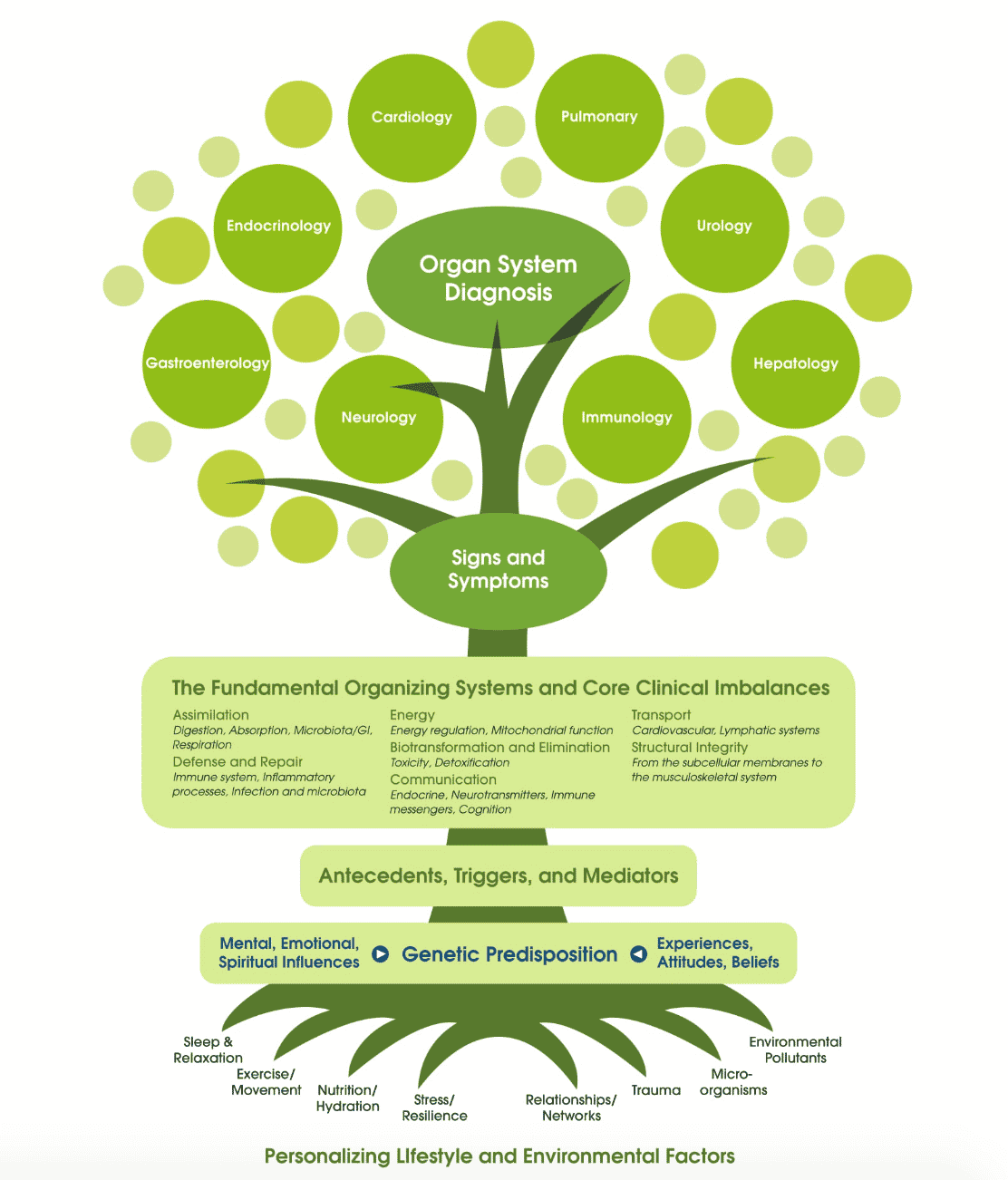Understanding the gut-brain connection can not only enhance your health but also strengthen your relationship.
Conflict is inevitable in any intimate relationship. Tempers can flare around all sorts of disagreements ranging from chores, childcare and finances to seemingly ridiculous issues like what to watch on television and where to dine for dinner. While that may come as no surprise, you may not know that the well-being of your partnership is intrinsically tied to your physical and emotional health. When one is suffering, the other is likely out of alignment too.
The link between marital harmony and health.
Our partner is supposed to be the person we turn to for support. When our relationship doesn’t feel secure and we feel alone, stressed and unhappy, it can affect our digestion, suppress our immune system and cause physical and psychological pain.
Mental, physical, and emotional health is all interconnected, which is why an integrative approach can be so transformative. By combining functional medicine and couples counseling, I help my clients get to the root of distressing symptoms and determine the appropriate treatment plan or course of action.

Multiple studies have found correlations between marital harmony and health. According to a 2018 study conducted by researchers at Ohio State University and published in the journal Psychoneuroendocrinology, marital distress can cause changes in the gut, leading to inflammation and illness.
“Men and women who demonstrated more hostile behaviors during the observed discussions had higher levels of one biomarker for leaky gut — LPS-binding protein —than their mellower peers. Evidence of leaky gut was even greater in study participants who had particularly hostile interaction with their spouse and a history of depression or another mood disorder.” ~ Institute for Behavioral Medicine Research at the Ohio State University Wexner Medical Center
Leaky gut occurs when the lining of the gut becomes permeable and undigested food particles and toxic substances in the intestines leak into the bloodstream, leading to migraines, bloating/constipation, skin conditions, food allergies and/or other troubling conditions. Dietary adjustments, supplements and counseling to get to the root of the problem can help reduce inflammation, boosting physical, mental and emotional health.
The Ohio State researchers go on to say, “Marital discord can slow wound healing and drive up risk for inflammation-related diseases, including depression, heart disease and diabetes.”
Gut health could work the other way around too with some researchers finding that it can influence our moods and behaviors. The gut isn’t just the area of your body that processes food. The microbiomes within the gut influence sleep quality, mental health, hormones, energy levels, metabolism and the types of foods we crave. Naturally, the well-being of our gut is directly connected to our overall well-being. If we often feel sick, sad, anxious or angry, it’s likely we’re finding it more challenging to navigate key relationships with patience and mindfulness.
Confrontation and the gut-brain connection.

Conflict affects the nervous system and the brain in profound ways. When we perceive a threat, the amygdala, sometimes called the “lizard brain,” switches on in our brain, and causes our bodies to go into fight or flight mode. This is the sympathetic nervous system kicking into gear. Adrenaline floods the body. Our heartbeat increases. Blood pressure goes up. Our digestion slows. Our breathing becomes shallow. Vision narrows. The muscles in our body tense up. We can no longer think clearly or rationally. And, we suddenly can’t remember a single thing we ever liked about our partner.
After the threat has passed or the argument has ended, our parasympathetic nervous system calms the body back down. A third part of the nervous system, the enteric nervous system often referred to as the “second brain” regulates digestion and releases neurotransmitters like serotonin, a soothing, feel-good hormone that helps manage depression and anxiety.
The nervous system in the body is an amazing network of communication systems, but when chronic stress takes the wheel it can upset that delicate system like road closures and traffic congestion during rush hour. That’s when troublesome health issues can arise.
Unhappy relationships and negative emotions can create chronic stress and inflammation in the body and cause abdominal pain and gastrointestinal distress.
According to recent research, “Stress and depression can reshape the gut bacteria’s composition through stress hormones, inflammation and autonomic alterations. In turn, the gut bacteria release metabolites, toxins, and neurohormones that can alter eating behavior and mood. Some bacterial species may encourage dysregulated eating.” (Current Opinion in Behavioral Sciences, August 2019)
By learning to manage stress and relationship distress in a healthy way, you not only strengthen your partnership but also enhance the well-being of your relationship with your body.
*To learn more about how gut health works, check out my article “I have a Gut Feeling this Could Help.”
Strengthen your partnership and your health.

Minor slights, misunderstandings and hurt feelings that go unaddressed can add up over time, contributing to feelings of disconnect, a deterioration of trust, and a sense of loneliness, frustration and resentment. According to The Gottman Institute, “both partners in a relationship are emotionally available only 9% of the time. This leaves 91% of our relationship interactions ripe for miscommunication.”
Addressing how you and your partner communicate through conflict, along with taking a closer look at your gut health, can make an enormous difference in strengthening your union. Here are a few ways to muscle up your communication and overall well-being:
Regain your calm. Self-soothing not only has a positive effect on you, but it can also be helpful to your partner’s health by contributing to a calmer environment. Permit yourself to take a time-out when tempers rise. Gear down from the argument by engaging in mindfulness practices that soothe your nervous system and support your gut health, like meditation, a walk, listening to soft music or breath work.
Take time to process the disagreement. Once you are calm again, reconnect with your partner and talk about how you fought. Don’t dig back into the argument itself, rather reflect on how the argument made you each feel (without judging or commenting on your mate’s feelings).
Consider triggers. Often past traumas and communication styles learned in childhood can contribute to how we manage conflict as adults. If you can, shed light on memories or experiences that may have contributed to the way you responded to the conflict with your partner. This conversation can help you and your partner get some insight into each other’s inner worlds and better understand and empathize with each other.
Own up and plan ahead. No matter how right you feel you were, acknowledge how you contributed to the emotional escalation. Discuss ways you can better manage conflicts in the future.
Reflect on shared experiences. Your attitude about your relationship can influence its success. Rather than focusing on problematic areas of contention, reflect on what’s right. What are the obstacles you have overcome together? What brought you together in the first place? What do you love and appreciate about each other? How do you have fun together?
Get help if you need it! Frequent conflict in relationships, anxiety, depression, disordered eating and illness are signs that you are in distress. You don’t have to continue to suffer. As a functional nutrition practitioner and a licensed therapist specializing in couples and family therapy as well as somatic experiencing to address trauma, I can teach you strategies that will help you heal the intensity of your experience of past events, manage overwhelming thoughts, strengthen your relationship and settle your nervous system. Contact me to book a discovery session. I’m happy to answer any questions you have, or help you find the right practitioner to support you!


